There Are Worse Timelines [An April 2020—Is It Still 2020?—Reading Journal]
Following the [Chernobyl] accident, physicists calculated that there was a ten percent risk that a nuclear explosion on an unimaginable scale would take pace within a fortnight. Such an explosion [. . .] would have been equivalent to forty Hiroshima bombs going off at the same time, and would have rendered Europe uninhabitable.
—Andrés Neuman, Fracture
Is this thing on?
Even though I posted something a mere eleven days ago (good god, time has no functionality anymore), and have been doing podcasts almost constantly, I feel like I’m coming out of retirement, or am back from some season-ending injury, or something.
There’s no reason to dwell on the ways in which COVID-19 + the mental and physical burdens of lockdown (is it possible for the world to run out of booze?) + full-time parenting (quarantine is the new social birth control) has made a mess of daily life. We’re all struggling, we all have our good days and dark moments, we’re all filled with uncertainty and fears about the future, and I’m willing to bet that concentrating on anything is kind of hit or miss right now.
I alluded to this in “The Book That Never Was” post, but in another timeline, I’m transcribing the final interview for my proposed book on translation and getting ready to go on tour with Sara Mesa and Katie Whittemore to celebrate the release of Four by Four.
In another alternate timeline, I came back from Europe to quarantine, kept my shit mostly together, and wrote a novel or a book that’s half-play, half-novel (I might dump my plot idea somewhere in this post), or worked on a lot of content for Three Percent, or wrote more newsletters than any reader could ever want.
But then again, as mentioned in the quote above, in one of the worst timelines, Chernobyl blows Europe all to hell in 1986 and the world of 2020 is unrecognizable—unrecognizable in a way that’s different than it currently is.
Remember when the biggest news story of the year was Kobe’s passing?
For me, on March 15th, everything I used to do with ease—read, write, make terrible jokes, get angry about petty shit in righteous ways—became nearly impossible. Over the past six weeks, the sense of trauma (or world sick) that completely crippled me is occasionally manageable. Like today.
That said, all my favorite bits for how to write these posts feel pretty stupid.
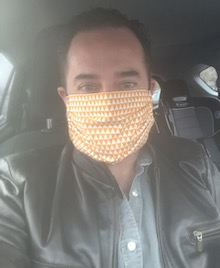 How the Sausage Is Made: In the past, I would figure out some book(s) I wanted to write about, then construct some sort of framing bit that would twist the way we usually talk about books. I can’t write straight reviews anymore (could I ever?), and journalism is boring. I hope some of those posts (like the one about treating authors like soccer players and totally upending the author-agent-publisher relationship in favor of the small, yet mighty) were entertaining. Maybe one or two had something interesting to say about book culture. They all feel like dispatches from another world right now, and to goof on shit when the world is shut down, when the continued existence of indie bookstores and publishers feels like a possibility instead of something to count on, and when there’s a strong possibility we will all lose someone close to us because of this virus . . . well, that just doesn’t feel quite right.
How the Sausage Is Made: In the past, I would figure out some book(s) I wanted to write about, then construct some sort of framing bit that would twist the way we usually talk about books. I can’t write straight reviews anymore (could I ever?), and journalism is boring. I hope some of those posts (like the one about treating authors like soccer players and totally upending the author-agent-publisher relationship in favor of the small, yet mighty) were entertaining. Maybe one or two had something interesting to say about book culture. They all feel like dispatches from another world right now, and to goof on shit when the world is shut down, when the continued existence of indie bookstores and publishers feels like a possibility instead of something to count on, and when there’s a strong possibility we will all lose someone close to us because of this virus . . . well, that just doesn’t feel quite right.
Then again, I’m sure someone out there is working on a book about “Marketing in the Age of the Coronavirus,” looking to exploit our current situation for the benefit of the wealthy. Oh dear god, this exists!
SHOULD we even be marketing right now?
Firstly, yes. You should absolutely be continuing your marketing right now. The financial and economical impact that loss of revenue or businesses shutting down could have, may linger far beyond the actual health crisis. So you need to ensure that consumers who CAN continue to buy do, and that those who don’t still build a relationship with your brand through this time.
Well, books are listed on there as a valuable product to market, since they’re “entertaining” (I have questions), maybe I should just go ahead and riff and recommend for a while. We’re covering The Dreamed Part every week with the Two Month Review, and being coronhonest about the book ecosystem on the Three Percent Podcast, so why not talk about a broader set of books here on the website?
Also, buckle up, I feel like I have all the time in the world now, so this is most definitely going to run long . . . and, like with the “January Reading Diary,” this is going to include all sorts of media. I mean, that’s all we have left, right?
*
Let’s start with the actual reason I forced myself to try and write this post tonight: Andrés Neuman’s Fracture, translated from the Spanish by Nick Caistor and Lorenza Garcia, and coming out on May 5th from FSG.
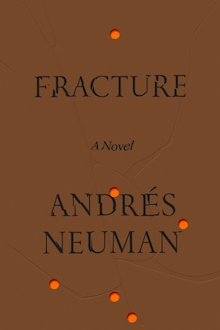 This was the first thing I tried to read when I got home on March 15th. The world was breaking and shutting down at an incredible pace, and I figured a book about a different catastrophe—the earthquake and ensuing tsunami that led to the Fukushima Daiichi nuclear disaster—would take my mind off of panic buying and my assumption that I probably had the virus and/or would get it and die alone.
This was the first thing I tried to read when I got home on March 15th. The world was breaking and shutting down at an incredible pace, and I figured a book about a different catastrophe—the earthquake and ensuing tsunami that led to the Fukushima Daiichi nuclear disaster—would take my mind off of panic buying and my assumption that I probably had the virus and/or would get it and die alone.
As you might remember, this trifecta of destruction took place on March 11th, 2011. Jeremy Garber pointed this out to me, but do you know what else has happened on March 11th? The Madrid bombings. And the WHO declaring COVID-19 a pandemic. What a cursed date! Fuck 3/11.
(And is it weird to anyone else that this is exactly six months before another cursed date? One of violent coups, terrorist attacks, and Russia’s test of the most powerful non-nuclear bomb of all time. Coincidence? Or just the result of living in a simulation?)
Back to the book. On March 11th, Yoshi Watanabe is out on the streets when the earthquake hits.
The city’s obsession, its nervous system, is prevention. Containment. Isolation. Ditches. Firebreaks. Anti-seismic constructions. An entire urban plan based on future disasters. The result is a dense weight of trust on a surface of fear. With this in mind, Watanabe stops off at a supermarket. He enters with a very specific objective.
When he locates the toilet paper shelf, he discovers there isn’t any. He notices that the people gathering the last rolls are more or less his age. On his way out, he sees that the stocks of a second product have been exhausted. Diapers. Senescence and infancy are united by the bathroom.
The ways in which different cultures and countries process catastrophe is kind of the point of the book, and the fact that this was paralleling our situation right from the jump led me to set the book aside for a few weeks. It wasn’t the right time—too much stress.
(Digression: My bidet obsession might have seemed a bit creepy in the past, but it sure doesn’t anymore! My butt has the last laugh!!)
Over the course of Fracture, through chapters told by the four major loves of his life along with his own reflections on his current moment, we come to find out that Watanabe was in Hiroshima when the Little Boy was dropped. He loses his father before his eyes, and the rest of his Nagasaki-based family one day later.
This is a book about trauma, about the danger of nuclear energy and weapons, of cultural responses to guilt and suffering, and about human life. All the bigger ideas in here are well thought through—this feels like a massive step forward for Neuman in terms of scope and self-assurance, which is saying a lot after Traveler of the Century, Talking to Ourselves, and The Things We Don’t Do—but it’s the sections from the various women that contain so many incredible lines and insights.
The way Neuman writes about failed relationships, about beauty at different ages, about sex and longing and mystery, about webcams and how a mother’s fears tend to be “preemptive,” is so heartfelt and human. This is the first book I’ve read in COVID WORLD that really connected with me. The first one that I read and didn’t just intake words.
I could quote probably fifty paragraphs from this book, but I’ll stick with just a few (each from a different one of Watanabe’s loves) that I personally found wise and perceptive:
You spend years creating rituals with someone, and then one day you realize that you don’t like that person anymore. You’re just in love with the ritual. And yet you feel incapable of separating, so you spend the rest of your life cultivating the perfect ritual with the wrong person. [. . .]
Ultimately, translation requires an element of attraction. You desire their voice. You recognize yourself in a stranger. And both are transformed. Doesn’t loving someone also include making their words your own? You struggle to understand, and you misinterpret. The other person’s meaning bumps up against the limits of your experience. For things to work with someone, you have to accept you won’t be able to get them perfectly. That even with the best of intentions, you’re going to manipulate them. [. . .]
As I see it, you fall in love twice. With the same person, that is. Once when you meet them and a second time when you lose them. That happened to me with Enrique. We weren’t getting along so well during those last years, why lie about it? He had his ways, like everyone, but time led me to forget them. After he died, I started to appreciate him again. Not just my husband, but somebody who’d already left long before he did.
All three quotes that are much more mawkish than you probably expected! I love the pyrotechnics that a lot of Spanish-language writers employ in ways that are unequaled in world literature. I’ve made my reputation in publishing a number of them—both at Dalkey Archive and Open Letter. (Speaking of, there’s a bit in Fracture that I think is an allusion to Fresán’s The Invented Part. Or a happy coincidence.) I grew up on Cortázar and Borges and love the challenge and brashness of books that challenge ideas of form and structure. Neuman can—and has—done that, but at a time when human connection is so mediated by Zoom and six-feet separations and fear of the infected, his heart really comes through.
*
Interlude #1: It’s ironic that the last post I wrote had a long, involved takedown of Bookshop.org. At the time, I was goofing on the way that celebrities—or celebrity authors—could invent their own “bookstores” on Bookshop.org and basically compete with bookstores. At the time, no one gave two fucks about Bookshop.org and it was probably four months from the digital graveyard.
But, oh, how times have changed!
Sort of.
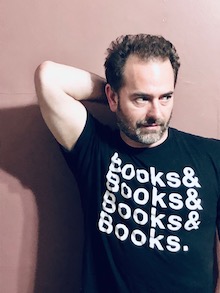
#QuarantineBody
Bookshop.org is now being heralded as some great savior for indie bookstores, who can get up to 30% of all sales placed through the website. (If you choose to attribute your purchase to a specific bookstore; if you just buy from the shop generically, then your favorite indie gets dick.) That sounds great, except it’s a much lower margin than the store gets if they process the order themselves.
So, with all the stores still shipping books—either in stock, or direct-to-home via Ingram—please order from one of them if at all possible.
On a related note, I’ll be putting up more shit in my personal Bookshop.org bookshop (started as a troll move to show the flaw in the system) and will donate any money I receive from this to Book Industry Charitable Foundation. (So far, I’ve made $19.20. WATCH OUT, JAMES PATTERSON!)
Related note to that related note: All proceeds from the sales of our “Books & Books & Books & Books” T-shirts will ALSO go to BINC.
*
Interlude #2: My initial idea for this post was to describe nine different books I’m 100% CERTAIN will come out in 2021 and reference COVID/lockdown and rate them. This came out of reading a sample in which a totally jaded man-boy narcissistically complains about how the world has gone off the rails in 2011. HA! Just wait, buddy. The idea that 2011 was the “worst possible timeline” seems so quaint now. I can’t imagine this book getting published in our current situation.
But that was written years ago, so it can be totally forgiven. (Even if it does have the most purple metaphors I’ve ever encountered.) But someone writing the great Brooklyn relationship novel about a couple falling apart (or coming together) during lockdown? UNFORGIVABLE! Don’t do it. Full stop.
Also: No twee diaries about your personal experiences during lockdown.
I’m dreading the deluge of dystopian YA books about viruses as well. And poorly imagined “alternate histories” about this particular moment in time.
I would be totally into books by moms about having to mother during this period. Because society has always sucked, a lot of the moms I’m in touch with are taking care of the kids full time + homeschooling + trying to do their jobs. I feel like writer-moms have a lot to share about empathy, sanity, will, and humanity. But, as we all know, I’m a sucker for mom books. (Preorder World’s Best Mother by Nuria Labari/Katie Whittemore from World Editions as soon as it’s available! I totally stand by this book. It’s great.)
*
Which is maybe a good segue to the second book I wanted to write about here: Four by Four by Sara Mesa, translated from the Spanish by Katie Whittemore, and which we’re bringing out on May 5th.

All the copies of FOUR BY FOUR that would be in our office, but are instead in my teenage daughter’s LED-lit room, dressed up as a giant armchair.
So, the other day, on one of the never-ending Zoom drinking get togethers that I’m both loving and feeling exhausted by, a bookseller shat on my posts for never promoting our own books. Which, fair. (This was the same day that someone on Twitter trolled me by calling me “a lame” and “total cap” for making fun of Bookfinity in my class. Which, c’mon bro, Bookfinity?!?! That exists to be the butt of so many jokes.)
Although, to be fair, this part of the Open Letter business—meaning Three Percent—was never supposed to be about Open Letter. At least not directly. This is me indulging my impulse to not market, but to say things about the book world in a broader way. Marketing our books is Anthony’s job! (I kid, I kid. But I do feel embarrassed pimping our own product.)
Nevertheless, I’ll try and include more of our books in here from now on out. I’m 100% sure this won’t change our sales, which, oh my god, this is a chart that will make it crystal clear what trouble the industry is in.
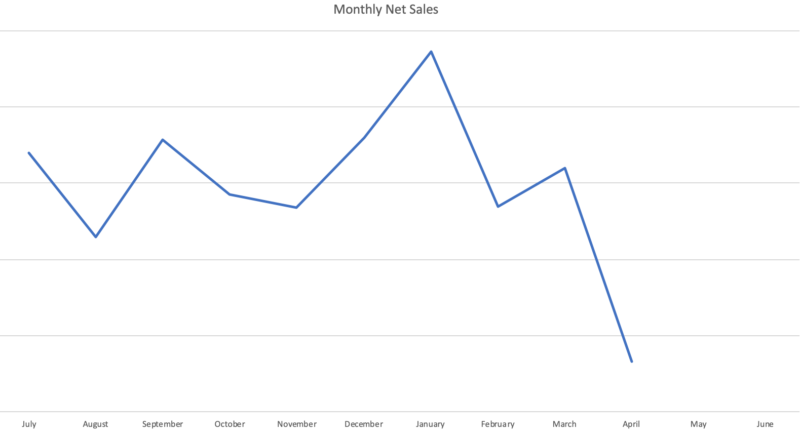
We had planned out two major books for 2020: Four by Four for May, On Time & Water by Andri Snær Magnason for September. That was one of the pillars to the “How to Take Open Letter to the Next Level” plan.
WELL!
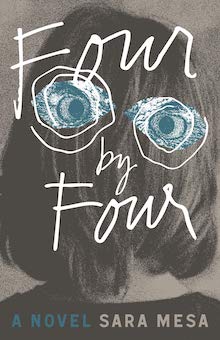 Four by Four‘s tour is over and all of the lovely booksellers who wanted to promote it are either a) unemployed, or b) not capable of hand-selling it in the way they could. And, to add insult to injury, the ABA didn’t choose it for the May IndieNext list. Which, who cares? That particular promotional pamphlet will be in something like 42 Florida and Georgia bookstores. But still: Don’t tell me this process is democratic. Let’s have a little transparency, ABA!
Four by Four‘s tour is over and all of the lovely booksellers who wanted to promote it are either a) unemployed, or b) not capable of hand-selling it in the way they could. And, to add insult to injury, the ABA didn’t choose it for the May IndieNext list. Which, who cares? That particular promotional pamphlet will be in something like 42 Florida and Georgia bookstores. But still: Don’t tell me this process is democratic. Let’s have a little transparency, ABA!
Anyway, this is THE quarantine book, in my opinion. Because I’m almost done with this glass of wine, I’m going to plagiarize what I wrote to all of our subscribers last week, AND reference the forthcoming LitHub interview:
Four by Four is the second of Sara Mesa’s novels to appear in English (the first being Scar, which came out a couple years ago from Dalkey Archive Press, and which I highly recommend). It’s a novel about power structures and how they’re abused. About the dangers of walling yourself off for the sake of protection. Of a private school where very sinister things happen. Of a pompous, annoying wannabe writer who impersonates a teacher to get into this school and spends his days trying to unravel what is actually going on there. It’s a sly novel, where a lot of key moments take place off-screen, so to speak. It functions like a mystery novel, requiring the reader to pay attention to subtle clues that reside beneath Sara Mesa/Katie Whittemore’s cool, precise prose. It’s a novel that—when you finish—you’ll be thinking about for months.
And it seems incredibly timely. (A bookseller told me it was the “quarantine book that readers need right now”.) I’ll let Katie and Sara talk about this though (from a forthcoming interview on Lit Hub):Katie Whittemore: Thinking about power and how it is expressed, where it resides, let’s turn to Four by Four specifically. I first read the book in 2018, and at the time, there was a great deal of attention in the U.S. media on the situation of undocumented children being separated from their parents at the border and housed in cage-like facilities. That resonated really sharply for me, as I wrote you in one of our first email exchanges. The novel felt so timely—power and subjugation, language as wielded by the powerful to shape reality, disregard for the humanity of someone weaker. More recently, as I was translating the novel, I followed the Jeffrey Epstein scandal, with its horror stories of sex trafficking of underage girls passed around among a cohort of powerful men, and I thought, wow, okay, Four by Four is really timely in this way, as well. Now—as we write—two-thirds of the world is confined at home and normal life has been suspended, all in an effort to protect ourselves and others from an outside danger—a virus, in this case—and this seems so timely as well: the idea that we can somehow remove ourselves from danger, safeguard ourselves against the threat “outside,” as well as the anxiety about whether something even more destructive is produced when we retreat and build walls to protect the places we deem safe. What is it about the themes present in Four by Four that seem so continually resonant with “current affairs”? It was published in 2012—almost a decade ago—but it reads as so continually relevant.
Sara Mesa: Honestly, this is the best praise someone could give one of my books: its adaptability, flexibility, the capacity to open itself up to the outside and take in distinct moments and societies. I think this happens to the extent that when I write, I don’t think about anything in particular, or at least not about anything that’s happening outside. I don’t write with regard to the present moment, to what’s topical. That would be really hard for me to do (I actually have to confess that I don’t really pay close attention to current affairs). If my work is political (and I believe it is), it’s political in that other way we’ve discussed. And I’m not really worried about whether or not readers find my books wanting on the level of composition, style, etc. I’m not worried about whether or not they think my books are beautiful or sublime. The worst thing that can happen to a book is for it to sound obsolete, to be read only with archeological curiosity. Kafka always sounds contemporary, even though his books were written a century ago. For me, this is the grand goal, but I’m happy with the fact that my books manage to survive a decade.
I know that we won’t come anywhere near our goal, but since this is Katie’s debut as a translator, I think everyone who reads this post should just buy it. I’m not above asking for favors right now. And if you don’t have a local store to order from, hit us up and we’ll give you the ebook for free.
I can’t write about this anymore. It’s a book that’s been in the works for two years, which was—not exaggerating here—the best editing experience of my life, and . . . all of the potential joys of sales and readings and Sara’s first Cubs game have been railroaded. Alas. Such is baseball, such is life!
*
Interlude #3: Speaking of the love of my life—”I’ll never look at my wife the way I look at baseball”—I’ve been filling that void with MLB The Show 2020, which happened to come out as my self-quarantine started. Am I good at it? NO. But I’m passable. And my Cardinals are in first place at 24-20. One-quarter of the season done . . .
One of the things I’ve learned by playing every single game (which I’ve never done before) is that losing streaks suck. You can do everything almost perfectly and still lose 3-2 because the homer you nearly jacked, went six inches foul. This is a game that is so random. And reminds you that the universe is cruel.
*
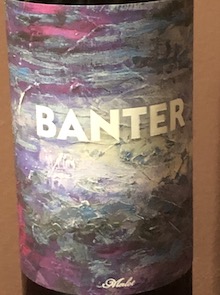 Interlude #3: Speaking of baseball, my favorite part of the Effectively Wild podcast is the opening banter. I 150% love the way Sam Miller looks at the world (the inspirations for how I think about my own writing are Sam Miller, Drew Magary, and Franco Moretti), and especially the stray thoughts he shares at the beginning of every podcast.
Interlude #3: Speaking of baseball, my favorite part of the Effectively Wild podcast is the opening banter. I 150% love the way Sam Miller looks at the world (the inspirations for how I think about my own writing are Sam Miller, Drew Magary, and Franco Moretti), and especially the stray thoughts he shares at the beginning of every podcast.
“Shared” might be more appropriate. Without any new stimuli, what is banter?
This is the thing that’s causing me the most psychic anguish: It’s hard to get new stimulation. For something random and unexpected to happen. The craziest shit we’ve ever lived through is all in play, so hearing that Jay Cutler and Kristin Cavallari are getting divorced just isn’t the same. In normal times, I’d have a bunch of jokes about this. (Mainly related to their appearance on The League in 2013.) Nowadays, that’s too frivolous to even register.
Which is also true of book news. And why I feel weird even attempting this post. Nothing makes sense, nothing matters, so why talk about anything that’s not COVID? On the upside, Rochester decided not to test city employees for smoking weed? They never should have been, but after “staying in place” for two months, I think we all deserve more than that courtesy. I think $1 billion of the next stimulus package should be sent sending edibles to every adult in the country. I don’t know about all of you, but if a little weed could relieve the stress? Even for an hour? Totally there for that. I feel like my stress baseline is like basically heart attack level. (Did you see that chart above???)
*
Interlude #4: Nicholas Mosley’s Catastrophe Practice series is my intellectual jam right now. I read this decades ago. Before I ever met John O’Brien or applied for a fellowship with Dalkey Archive Press. It was one of my top five favorite books—well, if you let me take all five books as a single entry—and it seems more relevant than ever.
I’ll get into this more in future weeks, but here’s a summary of the first book (written, but not the first one you should read) in the series:
Catastrophe Practice, in the form of three plays with prefaces and a novella, follows six characters trying to find their way through some catastrophe that is less in the world outside than in their minds. Drawing upon catastrophe theory to examine the discontinuities in human personality and our tendency to progress suddenly rather than smoothly, the six characters struggle to disrupt traditional ways of being. These characters feel that conventional ways of interpreting the world have become destructive—conventional language, conventional feelings, conventional situations—and try to find a way to realize genuine experience.
I’m so here for a revolution. It doesn’t have to be violent. We have an opportunity to rethink everything. And if we don’t take it? If we let the powerful go back to fucking our lives day in and out after this? That’s on us. Radical change is most possible during a catastrophe. Let’s do this. We can create a new timeline that’s better.
*
I’ve been listening to sooooo much music. Mostly artists like Julia Kent (for relaxation), Dan Deacon (for optimism), and Waxahatchee (for beauty). But, yo, a new Car Seat Headrest album comes out on Friday (a mere 4 COVID years from now) and it’s going to be incredible. I’ve listened to the EP/singles over and over and over and, as someone who likes artists who reinvent themselves with purpose, I’m all in.
That said, in reading the New York Times profile of Will Toledo, I found out about his parody EDM band 1 Trait Danger. HOLY SHIT. This is like Tenacious D + MC Lars + Juvenilia.
THIS.
Trolling Pitchfork is always fun. And the bit: “This is supposed to be Vampire Weekend. This is supposed to be Perfume Genius. The good shit!” SO GOOD.
“There Must Be More Than Blood” is fantastic. And the line, “I’ve only made one mistake in my life, I’ve only made one mistake” from “Can’t Cool Me Down” (ugh, so untimely with the fever metaphor) is killer. God I hope I can hang on for 42 more years and hear this whole album . . .
*
What’s next?
That’s literally a note in my “tickler file” of ideas to write about. Right next to “We live in soap opera land continuity.” Jesus Christ, Post.
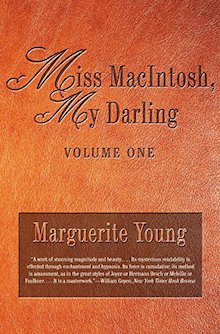
For me, what’s next is one of fourteen different things. When I first felt like I could read again, I laid out every single book I was interested in across my living room floor and hoped that one would draw me in. That lead to Muriel Spark and John Cheever and Henry Green and Jane Gardam, who were absolutely perfect for my reading mind at that moment.
Now I have two really long books calling out to me: Miss MacIntosh, My Darling by Marguerite Young (been talking about it on TMR forever, and always wanted to finish it), and A True Novel by Minae Mizumura, which makes sense as a way of blending Neuman’s Japanese book with Fresán’s bits about Wuthering Heights. (A True Novel is based on Emily Brontë’s masterpiece.)
Or I’ll read for work. Or watch Westworld and hope that this is all a dream we’ve been living in.
Till the next, stay safe, wash your hands, drink when you need to, and stay sane.

Leave a Reply